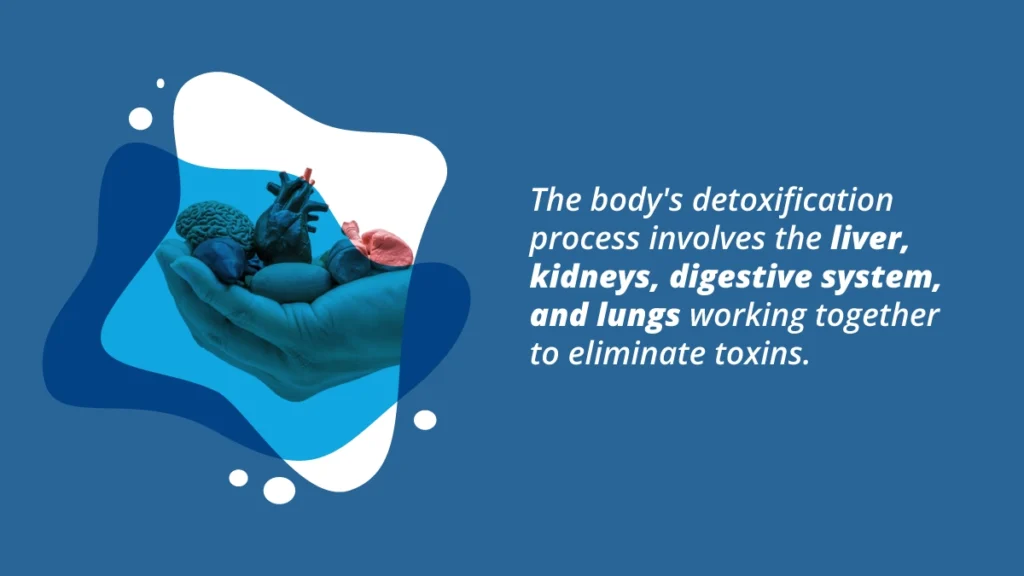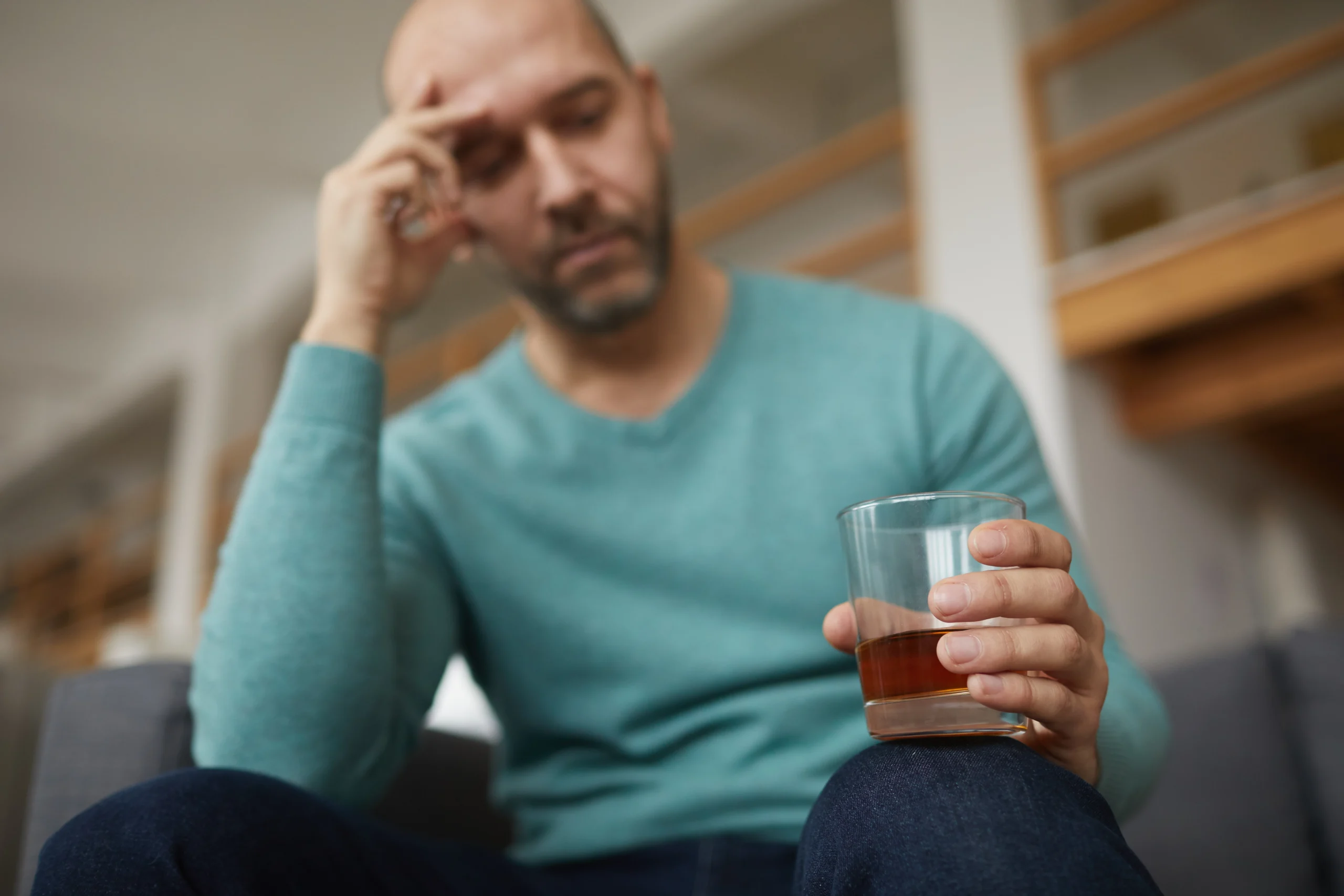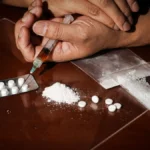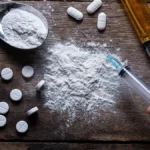Detoxifying from drugs and alcohol is critical to reclaiming a healthy, sober life. While there are various approaches to detox, one often overlooked but immensely beneficial aspect is incorporating exercise and physical activity.

Engaging in regular exercise during drug and alcohol detox can have a profoundly positive impact on both the body and mind. Physical activity helps flush out toxins, promotes better sleep, reduces cravings, and boosts mood by releasing endorphins.
This article explores the transformative power of practice as an integral part of the detoxification journey, offering practical insights and guidance for a successful recovery in the United States.
Key Takeaways
Detoxifying from drugs and alcohol is critical to reclaiming a healthy, sober life.
- The detox process removes drugs and alcohol from the body.
- Medical supervision and support during detox are crucial for ensuring safety.
- Home detox may have potential risks and complications.
- Engaging in self-care activities can contribute to a more comfortable detox experience.
If you or a loved one is looking for drug and alcohol detox, The Haven Detox-Little Rock can be a helping source in your recovery. Contact us at (501) 271-3342 to restore your life.
How Detox Works
Detoxification is a biological process through which the body eliminates toxins and harmful substances, such as drugs and alcohol. It involves several intricate steps that occur within the body.
The liver, a crucial organ in detoxification, plays a central role. It metabolizes drugs and alcohol, breaking them down into byproducts. Enzymes in the liver facilitate this breakdown process.
Another important aspect of detoxification is the kidneys. They filter the blood and eject waste products, including drug metabolites and alcohol byproducts. These waste products are then expelled from the body through urine.
The digestive system also contributes to detoxification. It breaks down substances, absorbs nutrients, and eliminates waste. The intestines help remove toxins through bowel movements.
Additionally, the lungs play a minor role in detoxification by expelling volatile substances, such as alcohol vapors, through exhalation.
The body’s detoxification is a complex biological process that occurs naturally. However, in severe addiction or substance abuse cases, medical interventions, such as medication-assisted detox, may be necessary to support and enhance the body’s natural detoxification mechanisms.
Understanding detox can help individuals appreciate the body’s resilience and healing capacity. It also underscores the importance of supporting the body’s natural detoxification processes through a healthy lifestyle, proper nutrition, and avoiding further exposure to harmful substances.
Importance of Detox in Recovery
One of the main reasons why detox is necessary is that it helps manage withdrawal symptoms. When someone stops using drugs or alcohol, their body reacts to the absence of the substances it has become dependent on, resulting in withdrawal symptoms.
Detox also helps address the physical aspect of addiction. Prolonged substance abuse affects the body, affecting vital organs and overall health.
Moreover, detoxification sets the stage for effective addiction treatment. A clear and sober mind enables individuals to engage fully in therapy, counseling, and other interventions.
It enhances the effectiveness of behavioral therapies. It also helps individuals understand the underlying causes of their addiction and grow coping mechanisms to maintain sobriety.
In addition to its psychological and physical benefits, detoxification offers individuals a fresh start. It symbolizes the commitment to change and breaks the cycle of substance abuse.
In drug detox, medical professionals provide specialized care and support to patients dealing with addiction to addictive substances such as prescription drugs or alcohol. Treatment centers offer various treatment options tailored to the specific needs of different people, taking into account mental health disorders and long-term drug use.
These facilities provide medical support while patients undergo detox, ensuring their safety and well-being. The family also plays a caring role in recovery, providing additional support and motivation. Seeking help from a treatment facility is vital in addressing alcohol use disorder and achieving long-term recovery from addiction.
Stages of Detox
Detoxification from drugs and alcohol typically occurs in two main stages. These stages are integral to detox, and understanding them can help individuals navigate their recovery journey effectively.
Acute Withdrawal Phase
The acute withdrawal phase is the initial stage of detox, which begins shortly after discontinuing substance use. It is characterized by a range of physical and psychological signs as the body adjusts to the absence of drugs or alcohol.
The withdrawal symptoms can vary and depend on the substance used but may include anxiety, irritability, insomnia, nausea, sweating, and intense cravings. The severity and duration of these symptoms also differ from person to person.
During the acute withdrawal phase, it is crucial to have professional medical supervision to ensure safety and provide the necessary support. Healthcare providers may administer medications to manage withdrawal symptoms and address potential complications. Depending on the substance and individual factors, this phase typically lasts a few days to a few weeks.
Post-Acute Withdrawal Phase
Once the acute withdrawal phase subsides, individuals enter the post-acute withdrawal phase. This stage is characterized by more long-lasting but less severe withdrawal symptoms that can persist for months or even years.
The symptoms are often psychological and may include mood swings, difficulty concentrating, anxiety, depression, and low energy levels. Post-acute withdrawal can also manifest as intermittent cravings for the substance.
During the post-acute withdrawal phase, individuals benefit from ongoing support, therapy, and counseling to address these psychological symptoms and develop healthy coping mechanisms. It is important to remember that post-acute withdrawal is a normal part of the recovery plan, and with time and proper care, the symptoms gradually diminish.
Home Detox: Pros and Cons
Home detox, or detoxification from drugs and alcohol in a home setting, can be an option for some individuals. While it offers certain advantages, it also carries potential risks and complications. Understanding the pros and cons of home detox can help people drive informed decisions about their recovery journey.
Pros of home detox include:
Comfort and Familiarity: Being in a familiar environment can provide an emotion of comfort and security during the detox process.
Privacy: Home detox allows individuals to maintain their privacy and confidentiality, avoiding the potential stigma of seeking professional treatment.
Cost: Home detox may be more cost-effective than inpatient detox programs or residential treatment.
Cons of home detox have:
Lack of Medical Supervision: Home detox usually lacks the 24/7 medical supervision and support that professional detox programs provide. It can raise the risk of medical complications and inadequate management of withdrawal symptoms.
Limited Access to Resources: Home detox may have limited access to healthcare professionals, counseling services, and support groups, vital for successful detox and long-term recovery.
Safety Concerns: Certain substances, such as alcohol and benzodiazepines, can lead to severe withdrawal symptoms that require immediate medical attention. Home detox may not provide timely access to medical care in emergencies.
Potential risks and complications:
Severe Withdrawal Symptoms: Some individuals may experience intense withdrawal symptoms that can be hard to drive without professional medical supervision.
Medical Complications: Without medical monitoring, there is a risk of complications arising from pre-existing medical conditions or underlying health issues.
Relapse Risk: Home detox may lack the structure and support needed to prevent relapse during the vulnerable early stages of recovery.
Resources for Home Detox
While home detox may be an option for some, it is crucial to have access to appropriate resources and support. These resources can include:
Telemedicine Services: Virtual consultations with healthcare professionals who can provide guidance, monitor progress, and prescribe necessary medications.
Supportive Friends and Family: A robust support system at home can offer emotional support and encouragement during detox.
Outpatient Treatment Programs: Engaging in outpatient programs can provide access to counseling, therapy, and support groups while detoxing at home.
It is essential to consult with healthcare professionals and addiction specialists to determine the most suitable detox approach based on individual needs and circumstances. Professional guidance ensures safety, optimal symptom management, and increased chances of long-term recovery in the United States.
Medical Detoxification
Medical detoxification, often called medical detox, is a supervised and structured process of detoxifying from drugs and alcohol. It occurs in a medical setting, such as a detox center or rehab program, where healthcare professionals closely monitor and manage the withdrawal process. Medical detox is designed to ensure safety, alleviate withdrawal symptoms, and provide necessary medical interventions when required.
Detox Centers and Rehab Programs
Detox centers and rehab programs offer specialized services for individuals seeking to detoxify from drugs and alcohol. These facilities provide a supportive environment with round-the-clock medical supervision and access to healthcare professionals trained in addiction medicine.
Detox centers and rehab programs offer a range of interventions, including medication management, counseling, therapy, and support groups, to facilitate the detox process and transition into comprehensive addiction treatment.
Role of Medication in Detox
Medication plays a crucial role in medical detox. Certain medications can help manage withdrawal symptoms, reduce cravings, and minimize potential complications.
Experts may prescribe medicines to address specific substance dependencies and individual needs. Medications during detox aim to improve comfort, increase safety, and enhance the overall success of the detoxification process.
Importance of Medical Supervision During Detox
Medical supervision is vital during detox to ensure safety, monitor vital signs, and promptly address any medical complications. Healthcare professionals in detox centers and rehab programs are equipped to manage severe withdrawal symptoms and provide immediate medical interventions if necessary.
Medical supervision also helps individuals receive appropriate medication management, counseling, and emotional support throughout the detox process, improving their chances of successful detoxification and long-term recovery.
Tips for a More Comfortable Detox
Detox can be tricky and uncomfortable for some people, but several ways are here to make the experience more comfortable. Following the tips can make your detox experience more comfortable and supportive.
Stay Hydrated
During detox, it’s crucial to stay hydrated by drinking plenty of water. Hydration helps flush out toxins from the body and supports overall well-being. Aim to have at least 8-10 glasses of water daily, and consider incorporating herbal teas or electrolyte-rich beverages for added hydration.
Exercise
Light exercise can help alleviate withdrawal symptoms and boost mood during detox. Exercise releases endorphins, which are natural mood-enhancing chemicals in the brain. Choose low-impact activities such as walking, yoga, or gentle stretching to get your body moving and promote well-being.
Eat Well
Maintaining a nutritious diet is essential during detox. Focus on consuming whole foods, including fruits, vegetables, lean proteins, and whole grains.
These provide essential nutrients that support your body’s healing process. Avoid processed foods, sugary snacks, and caffeine, as they can worsen withdrawal symptoms and disrupt your body’s natural balance.
Keep a Journal
A journal can be a valuable tool during detox. Write down your thoughts, feelings, and experiences as you process. Journaling can provide a sense of release, help you process emotions, and track your progress. It can also remind you of your motivations and goals, keeping you focused and motivated on your journey to recovery.
Frequently Asked Questions (FAQs)
What are the five steps of recovery from drug addiction?
Acknowledgment: Realize and accept addiction as a problem.
Seeking Help: Reaching out for professional support through therapy, counseling, or support groups.
Detoxification: Undergoing the process of removing drugs from the body and managing withdrawal symptoms.
Rehabilitation: Engaging in comprehensive treatment programs that address the causes of addiction and develop healthy coping skills.
Maintenance and Relapse Prevention: Sustaining recovery through ongoing support, aftercare programs, and implementing strategies to prevent relapse.
What is the detoxification process?
Detoxification, or detox, eliminates toxins and harmful substances, such as drugs or alcohol, from the body. It involves the body’s natural mechanisms, primarily the liver and kidneys, breaking down and filtering these substances. Detox can occur naturally, but in cases of severe addiction, medical interventions may be necessary to support the process and manage withdrawal symptoms
What happens when you detox?
When you detox, your body goes through a process of removing alcohol or drugs from your system. It can result in various physical and psychological effects as your body adjusts to the absence of these substances.
Common symptoms during detox include cravings, sweating, nausea, anxiety, irritability, and insomnia. The severity of these symptoms leans on the substance and individual factors.
Medical detox ensures safety by providing professional supervision, managing withdrawal symptoms, and addressing any complications that may arise during detoxification
Rebuild Yourself With The Haven Detox-Little Rock
Take the first step towards lasting recovery at The Haven Detox-Little Rock. Our experienced team provides compassionate and effective treatment for drug and alcohol addiction.
With a focus on evidence-based approaches and personalized care, we are dedicated to helping you reclaim your life. Don’t wait any longer.Contact us at (501) 271-3342 to learn more about our comprehensive detox programs and start your path to lasting recovery. The Haven Detox-Little Rock is here to support you every step of the way.




